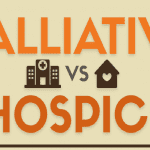
What’s The Difference Between Inpatient And Outpatient Drug Treatment?
Deciding to get treated for substance or drug use is essential to recovery. Recovery is a process that is not easy, and that’s why some facilities dedicate their time, energy, and resources to ensure they help throughout the whole process.
Recovery centers divide patients into inpatients and outpatients. The inpatient substance abuse treatment is done inside a center, and patients are admitted to the facility mainly because they need to be monitored closely. Outpatient substance treatment offers flexibility because patients get treated while their everyday lives continue. Below are the differences between these two types of drug treatment.
Inpatient Drug Treatment
Inpatient treatment, known as residential rehab, requires the patient to live or get admitted at the facility or center. The centers have different levels; some are hospital-like, and others are structured like luxury hotels or spas. The difference can be in the cost where the luxurious one might be more expensive, but the most fundamental thing is to provide 24-hr support and care. Some unique features of inpatient substance abuse treatment are:
Inpatient Care is More Hands On Compared to Outpatient Care
Inpatient care is more intense because they mostly use three recovery phases: detox, reflection, and growth. It is crucial to receive medically assisted treatment depending on the drug you are detoxing from. Some of these treatments can adversely affect the body and mental state, and that’s where 24-hour support and care come in.
After detox, the shift moves from allowing the drugs to exit the body to helping the patient through the withdrawal through counseling and therapy. Withdrawal symptoms are hard to deal with and sometimes fatal, especially those associated with substances such as heroin and synthetic opiates.
It Removes the Patients from Environments that would Trigger a Relapse
Inpatient substance abuse treatment requires the patient to be separated from their daily life, so if you have a child, you have to look for someone to take care of them. If you are working or enrolled in school, you would have to postpone.
Costs are Relatively Higher Compared to Outpatient Drug Treatment
The costs are usually higher for inpatient substance abuse treatment than outpatient for food, security, and housekeeping reasons. However, it is essential to note that the cost of addiction is always higher than the cost of substance abuse treatment.
Outpatient Drug Treatment
Outpatient drug treatment involves getting treated daily through group sessions, counseling, or therapy at a facility or center. Things one should know about this type of treatment are:
- The patients can continue their everyday lives, such as going to school, working, and being with their family members.
- The cost is lower than that of an inpatient.
- The sessions are flexible and thus can be done during the evenings to accommodate work schedules.
Being treated for drug abuse as an outpatient requires lots of discipline and commitment to show up at the given times in the facility. It is important to note that outpatient drug treatment may not be a good choice if:
You are at more risk of having a relapse if you haven’t completed an inpatient program first.
Outpatient centers do not offer 24-hour care and support, and it may be difficult to withdraw from the substance altogether. You will need help if and when you experience the desire to use again.
You’ll have to be more committed to coming to group sessions.
Being able to withdraw from substance abuse entirely depends on participating and attending the sessions. Opting for an inpatient facility would be essential if you need more monitoring and structured treatment.
Conclusion
Whichever type of rehab you choose, both would help get you on the road to lifelong recovery. Inpatient and outpatient drug treatments will also help to equip you with the skills needed to continue the recovery journey even after rehab.


